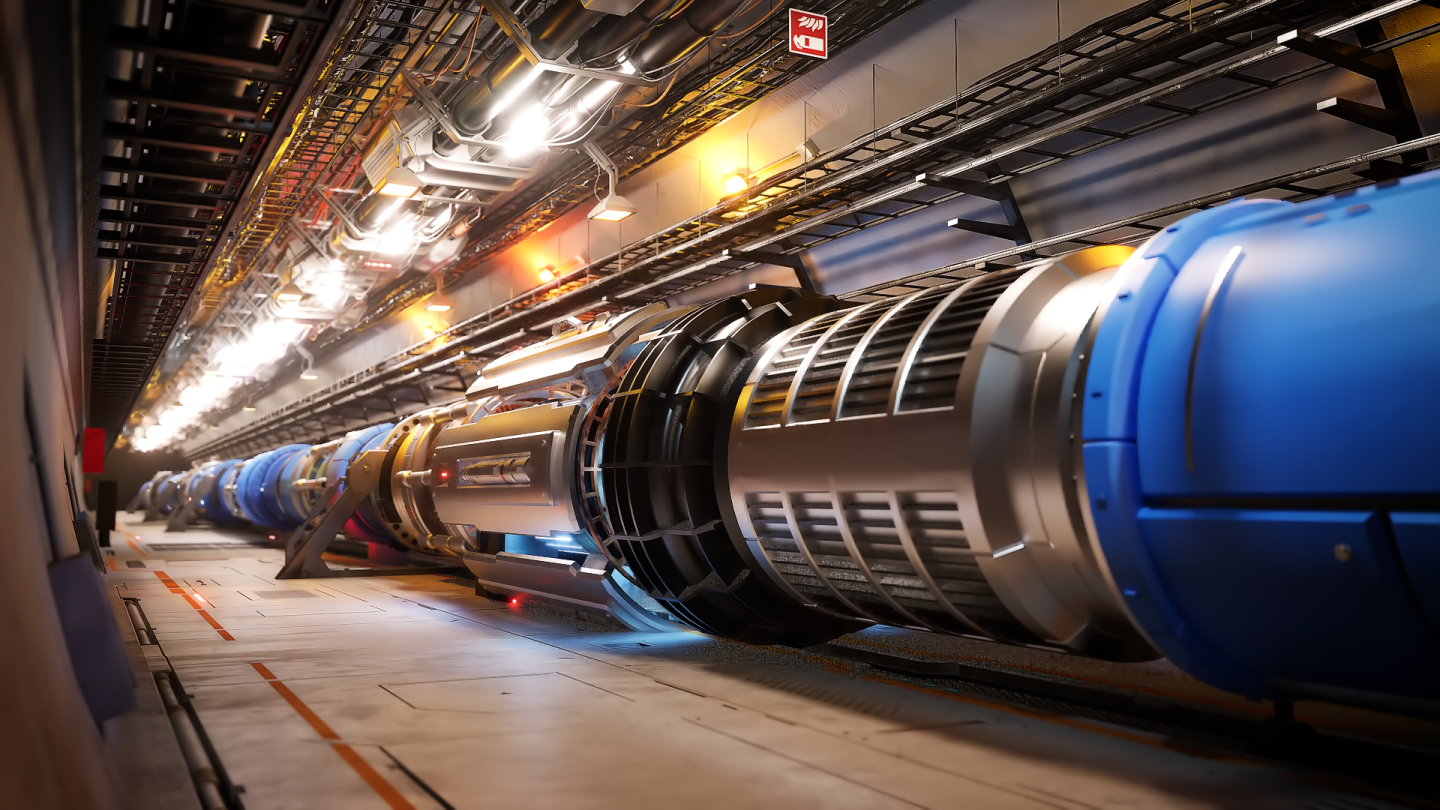At a special meeting at CERN last week, member states decided to continue studies into a future particle accelerator. Physicswise the project is favoured, but more homework is needed, according to the council.
This is evident from the final statement of the CERN Council meeting in Geneva to assess the completed feasibility study for the FCC accelerator. The CERN Council is the meeting of member states of the lab, of which the Netherlands is also a part.

The FCC feasibility study was published in March with the conclusion that there are no technical showstoppers for the giant circular accelerator. The machine is feasible and is expected to yield many important physics discoveries. ‘From a physics point of view, FCC is in pole position,’ says Dutch council member Eric Laenen of Nikhef.
European strategy
The work on a possible FCC is taking place within the framework of a renewed strategy for European particle physics (ESPP), which is due to be completed in May 2026. The first version of the strategy will be written during a meeting in Switzerland in December this year.
The FCC feasibility study is the work of more than a thousand experts in particle physics and accelerator technology, and was emphatically endorsed by the Council last week. The project is in line with CERN’s ambition to remain the world’s leading laboratory for particle research. CERN Director Fabiola Gianotti called the report ‘a remarkably broad and in-depth study’.
91 kilometres
According to the feasibility study, the Future Circular Collider (FCC), as the project is provisionally named, could be an accelerator with a circumference of 91 kilometres in a tunnel southeast of Geneva. The FCC would be the successor to the current LHC, a 27-kilometre proton collider at CERN with 7 TeV of energy. The FCC will eventually produce 100 TeV collisions.
The Council is asking for further studies in a number of non-technical areas in order to be able to make a proper assessment. These include landscape and environmental impact, reducing uncertainty in costs, finding funding and communicating the social benefits of the new accelerator.
Various scenarios
The cost of an FCC accelerator is currently estimated at 15 billion euros, spread over several decades. Various scenarios are possible for the project.
In an initial phase, it could fire electrons at each other for the production and in-depth study of Higgs particles, which provide insight into the Higgs field: a property of empty space that gives elementary particles their specific masses. In a later phase, proton collisions could be used to search for as yet unknown forces and particles. This would require, among other things, much better magnet technology.
Plan B desired
European countries have until the end of this week to contribute to the ESPP strategy discussions. The Netherlands will also designate FCC as its physical favourite, but will insist on a suitable plan B in case the supercollider proves less easy to realise. This could include scenarios in which a new electron accelerator or an electron-proton collider is first built in the LHC tunnel, followed later by a new accelerator with much higher energy. This could still be an FCC, but it could also be an accelerator based on muons.
Project coordinator Rosemarie Aben of Nikhef is positive about the advice and the process. ‘It was an open discussion, in which the younger generations of physicists in particular were very welcome and expressed their views. Most current staff will not be active anymore in the FCC era, but they will. It is their future.’
Decision in 2028
According to the schedule, the CERN Council will make a decision on the possible construction of the new accelerator in approximately 2028. Construction could start in the early 2030s, after which the physics measurement programme could begin in the 2040s.
